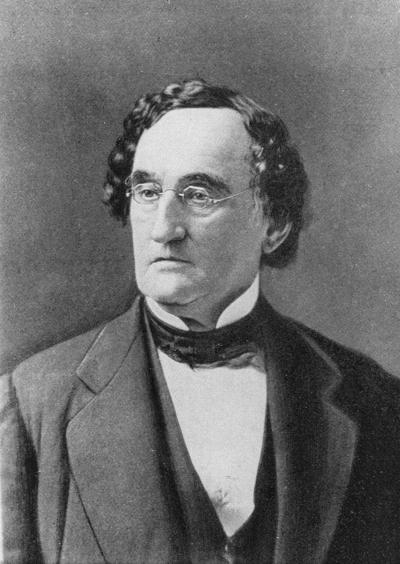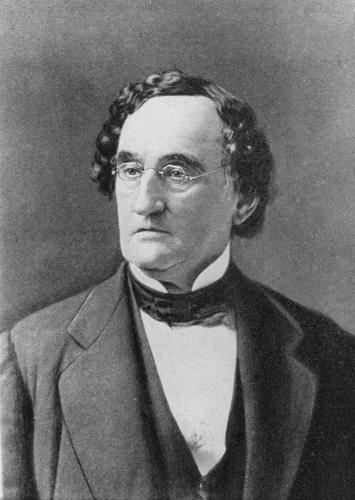On December 17, 1853, Benjamin F. Perry delivered a speech in Columbia to the “Merchants, Mechanics, and Businessmen.”
Benjamin Perry was born in Pendleton District, which is now Oconee County, in 1805. He grew up on his family’s farm and attended school when he could. By fourteen, he was managing the farm.
After attending a term at the Asheville Academy in North Carolina and another term at the Greenville Male Academy, Perry began to study law in Greenville. He was admitted to the bar in 1827 and ten years later he married Elizabeth Frances McCall of Charleston.
In 1830, Perry turned to journalism and became the editor of the Greenville Mountaineer, which was a voice for Unionists in South Carolina.
He maintained that his political views were drawn from Washington’s Farewell Address and the Federalist Papers.
In 1832, as a delegate to the nullification convention, Perry voted against the ordinance. In 1836, he was elected to the state House of Representatives and from 1844 to 1847 he served as a state senator.
He then returned to journalism as editor of the Southern Patriot and later, the Patriot and Mountaineer. The latter was the only Unionist newspaper in South Carolina at the time.
As a delegate to the 1860 national Democratic convention, Perry refused to accompany the other South Carolinians when they walked out of the meeting. Although he labeled secession as “madness and folly,” once South Carolina seceded, he was loyal to the Confederacy.
During the Civil War, he served as district attorney and in a number of other local offices. In 1863, he organized the Greenville Mounted Riflemen and served as second lieutenant.
In June of 1865, Perry was appointed provisional governor of South Carolina by President Andrew Johnson. He served for six months and, interestingly, became an outspoken opponent of Reconstruction.
Perry opposed suffrage for African Americans and did not support ratification of the Fourteenth Amendment. He later became a champion of states rights and supported Wade Hampton III for governor.
In 1853, Perry stressed free education. He also endorsed literary societies, “where all may have books to read.”









